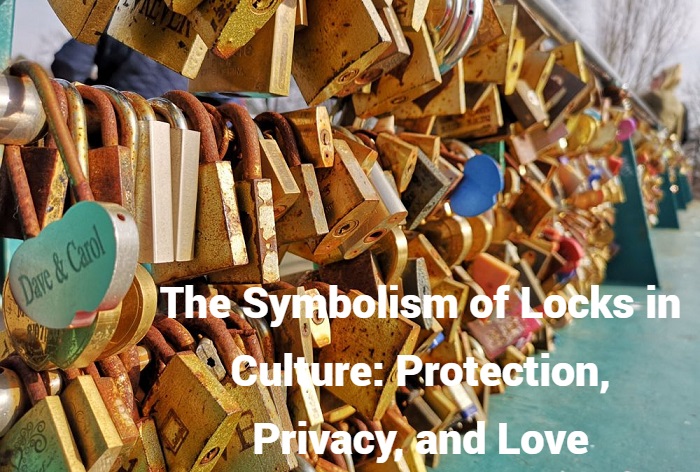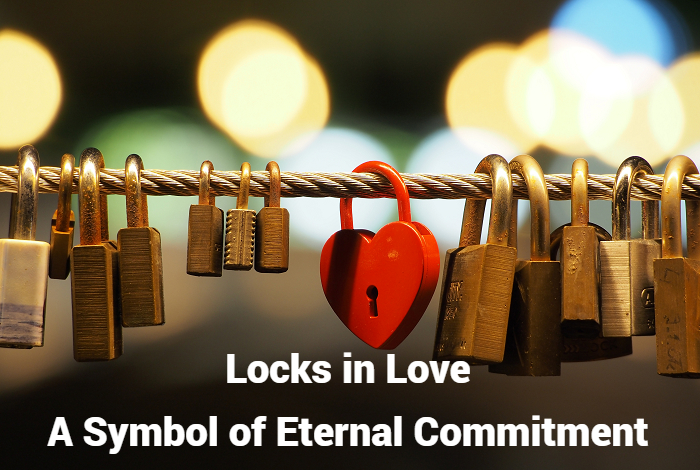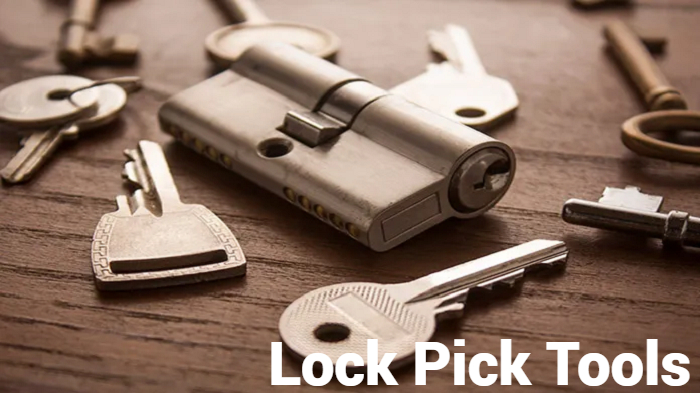The Symbolism of Locks in Culture: Protection, Privacy, and Love
2025-02-05 09:51
Locks have held deep symbolic meaning across various cultures and societies for centuries. Beyond their literal meaning, locks are often powerful symbols of protection, privacy, mystery, and even emotional connections. Their ability to conceal, secure, and regulate access makes them a fitting metaphor for a range of human experiences, from safeguarding personal space to marking commitment in romantic relationships. Let’s explore the multifaceted symbolism of locks, from their common association with power as Lock Pick Tools to their deeper meaning in love and relationships.

Locks as Symbols of Protection and Privacy
One of the most immediate associations with locks is the idea of protection. Historically, locks were invented as a practical tool to secure physical spaces—homes, treasures, and personal belongings—from unwanted intrusions. This practical function has evolved into a broader symbolic meaning, where locks are often used to represent safety and the safeguarding of something valuable. In many cultures, the lock has come to signify that something precious or secret is being carefully guarded, whether it's a person's heart, an important piece of knowledge, or an intimate space.
In literature and films, locks are frequently used as symbols of secrecy or mystery. A locked door can represent an obstacle or barrier that must be overcome, hinting at something hidden behind it. The very act of unlocking a door or breaking a lock often marks the unraveling of a mystery or the revelation of a long-guarded secret. In this context, locks symbolize the human desire for privacy and the need to shield ourselves or our thoughts from others, creating a sense of security but also a potential for isolation.
The Key: Power and Control
While locks themselves represent boundaries and limitations, the key to a lock holds its powerful symbolism. Keys, by their ability to unlock doors, are often seen as symbols of power and control. The person who holds the key possesses the authority to open or close access, which makes keys potent symbols of dominance and influence. In various forms of media, keys are often tied to themes of power—whether it’s the key to a city, a kingdom, or a person’s heart.
The power dynamic surrounding keys extends to personal relationships as well. In romantic contexts, giving someone the "key to your heart" represents trust, vulnerability, and the deep emotional connection that person has over your life. This gesture indicates that the person who holds the key has access to the innermost parts of you, symbolizing both love and control in the relationship.
Locks as Symbols of Freedom and Revelation
On the other side of the power dynamic, locks also symbolize freedom, particularly when they are broken or unlocked. In many cultural narratives, the breaking open of a lock symbolizes liberation or the release of something that has been constrained. This is a common trope in both literature and film, where characters often experience personal growth or freedom after overcoming physical or metaphorical locks.
For instance, the unlocking of a gate or a door can symbolize the breaking down of barriers—whether they are societal, emotional, or psychological. In these instances, the act of unlocking or breaking a lock represents a journey toward self-discovery, the unveiling of hidden truths, or the reclaiming of one’s freedom. The key to a lock is no longer just a symbol of power, but a Locking Tool of emancipation, allowing the individual to access a new world or self.

Locks in Love: A Symbol of Eternal Commitment
In many cultures, locks have also come to symbolize love and commitment. One of the most widespread and enduring symbols is the tradition of "love locks," where couples attach padlocks to bridges, fences, or other public structures as a demonstration of their everlasting love. This practice, which gained popularity in Europe and Asia, involves couples inscribing their names or initials on a lock, securing it to a railing, and then throwing the key into a nearby river or body of water. This act symbolizes the unbreakable bond between the couple and their vow to stay together forever.
The idea behind love locks is simple yet profound: the lock represents the couple’s connection, while the discarded key symbolizes the irreversibility and permanence of their commitment. By throwing the key away, the couple metaphorically locks their love away, making it inaccessible to outside forces and reaffirming their emotional connection. This gesture speaks to the universal human desire for security and stability in romantic relationships, providing a physical manifestation of love that transcends time and space.
In some cultures, locks are also used in wedding ceremonies, where the bride and groom lock a padlock together and then keep the key as a symbol of their enduring commitment. This practice mirrors the same sentiment of eternal love found in love lock traditions, but it is more intimate and personal. The act of locking something—whether it's a shared lockbox or a symbolic padlock—becomes a ritual that reinforces the couple’s vows to protect, cherish, and remain loyal to one another.
Locks as Metaphors for Relationships
Beyond their symbolic presence in love and commitment, locks also serve as metaphors for relationships themselves. In the beginning stages of a romantic relationship, individuals often feel like they are "locked" away, protecting their hearts from potential hurt or betrayal. As trust develops over time, the lock begins to open, and vulnerability is allowed to flourish. In this sense, the lock symbolizes the emotional barriers we create in relationships, and the key is the trust that gradually allows us to unlock and share our deepest feelings.
However, not all relationships are built on trust and love, and locks can also represent negative aspects of relationships. The inability to unlock a door or Lockpicking can represent emotional distance, unresolved conflicts, or a lack of communication. In these situations, the lock becomes a barrier that prevents emotional intimacy and growth.

Conclusion
The symbolism of locks is rich and varied, touching on themes of protection, secrecy, power, control, freedom, and love. Whether in literature, film, or cultural practices, locks serve as powerful metaphors for the boundaries we create in our lives and relationships. From the keyholder’s authority to the act of unlocking or breaking free, locks represent the complex dynamics of human connection—both the safety we seek and the liberation we yearn for. In love, locks serve as a timeless symbol of commitment, while in life, they remind us of the power we hold to open doors to new opportunities, connections, and self-discovery.

 Like Us on Facebook to enjoy 5% discount
Like Us on Facebook to enjoy 5% discount